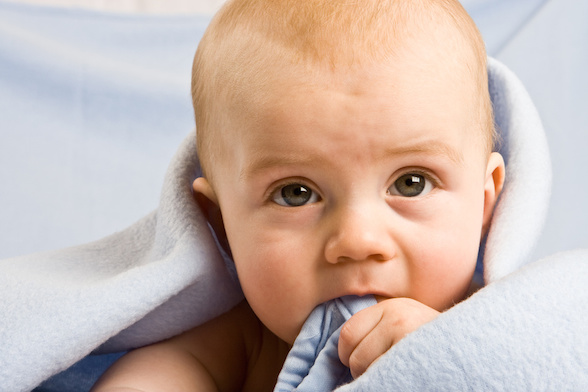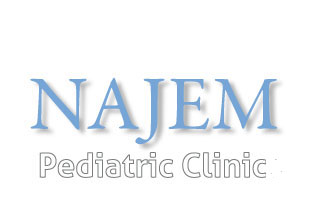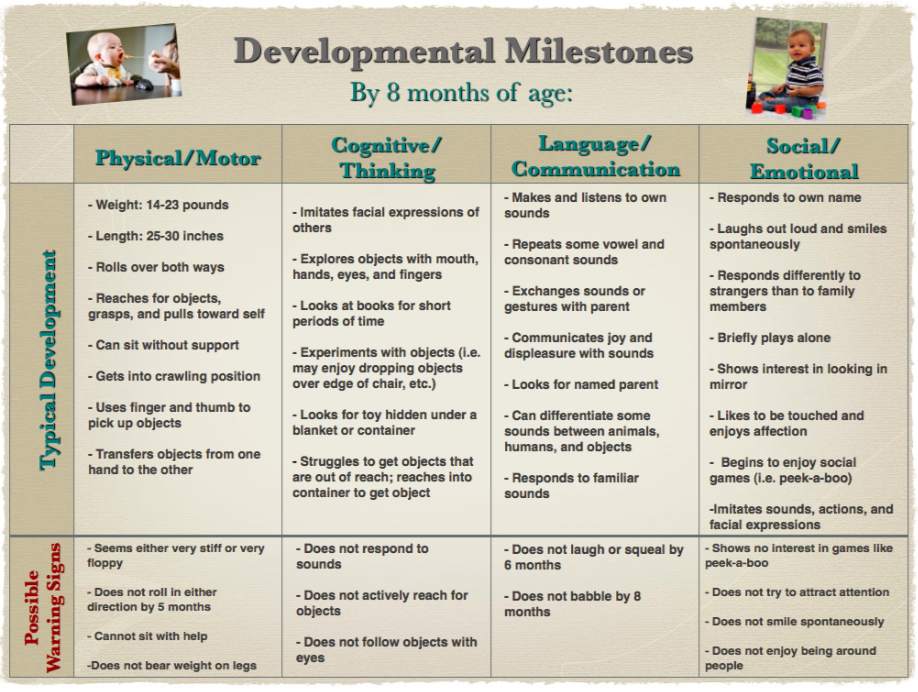Stages of Development Newborn - Young Child
From helpless newborn to active toddler: It takes just 12 short months for your baby to undergo this incredible transformation. Babies grow and change at an astounding pace, and every month brings new and exciting developments.
-
Baby Development: One to Three Months
- Smile. Early on, it will be just to herself. But within three months, she’ll be smiling in response to your smiles and trying to get you to smile back at her.
- Raise her head and chest when on her tummy.
- Track objects with her eyesand gradually decrease eye crossing./li>
- Open and shut her hands and bring hands to her mouth
- Grip objects in her hands.
- Take swipes at or reach for dangling objects, though she usually won’t be able to get them yet.
- Roll over from front to back or back to front. Front-to-back usually comes first.
- Babble, making sounds that can sound like real language.Fidget and squirm in their seats
- Laugh.
- Reach out for and grab objects (watch out for your hair), and manipulate toys and other objects with her hands.
- Reach out for and grab objects (watch out for your hair), and manipulate toys and other objects with her hands.
- Start to crawl. This can include scooting (propelling around on his bottom) or “army crawling” (dragging himself on his tummy by arms and legs), as well as standard crawling on hands and knees. Some babies never crawl, moving directly to from scooting to walking.
- Sit without support.
- Blurt out inappropriate comments, show their emotions without restraint, and act without regard for consequences
- Respond to familiar words like his name. He may also respond to “No” by briefly stopping and looking at you, and may start babbling "Mama" and "Dada."
- Clap and play games such as patty-cake and peekaboo.
- Learn to pull up to a standing position. Baby Development: 10 to 12 Months
- Begin feeding herself. Babies at this developmental stage master the “pincer grasp“ -- meaning they can hold small objects such as O-shaped cereal between their thumb and forefinger.
- Sit without support.
- Cruise, or move around the room on her feet while holding onto the furniture.
- Respond to familiar words like his name. He may also respond to “No” by briefly stopping and looking at you, and may start babbling "Mama" and "Dada."
- Clap and play games such as patty-cake and peekaboo.
- Learn to pull up to a standing position.
- Say one or two words, and "Mama" and "Dada" become specific name for parents. The average is about three spoken words by the first birthday, but the range on this is enormous
- Say one or two words, and "Mama" and "Dada" become specific name for parents. The average is about three spoken words by the first birthday, but the range on this is enormous.
- Take her first steps. This usually happens right around one year, but it can vary greatly.
Baby Development: Four to Six Months
Baby Development: Seven to Nine Months

Infant

Toddler
The Infant Year Milestone Visits
- Prenatal Visit
- One Month Visit
- Two Month Visit
- Four Month Visit
- Six Month Visit
- Nine Month Visit
The Early Years Milestone Visits
- Twelve Month Visit \
- Fifteen Month
- Two Year Visit
- Three Year Visit
- Four Year Visit
The Middle Years Milestone Visits
- Check-up every year till 21

